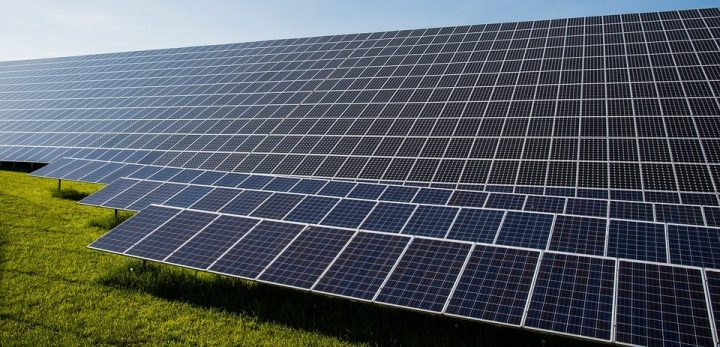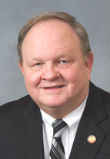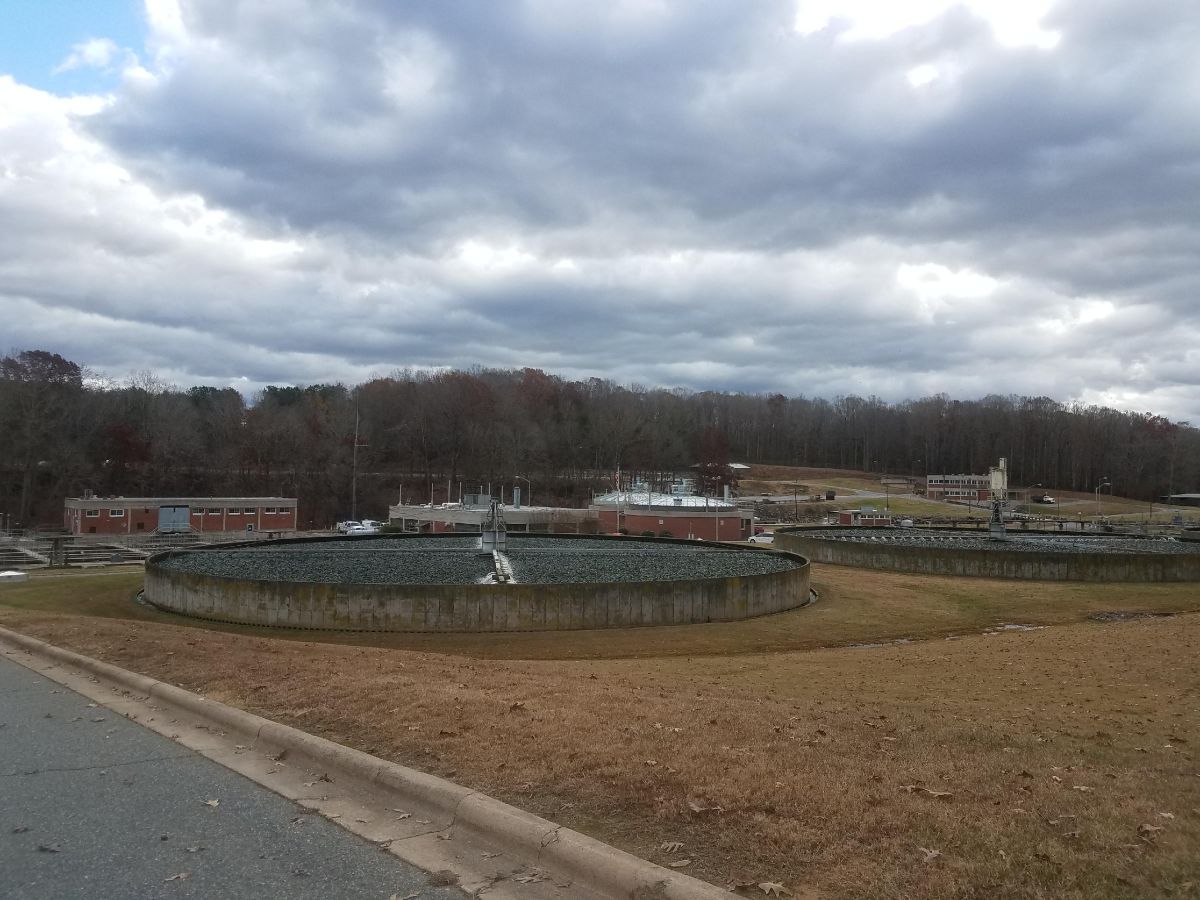
RALEIGH — Legislation that would make major changes to state energy policy, including sweeping revisions to solar energy regulations, is taking shape and could be introduced as soon as this month.
Changes could include approval of third-party energy sales and streamlined permitting for solar projects. Under current rules, only utilities can directly sell energy in North Carolina.
Supporter Spotlight

Word that the work of a large stakeholder group of industry and environmental advocates convened in early 2015 to tackle a number of energy issues would likely yield new legislation this session came in a keynote speech Friday by Rep. Chuck McGrady, R-Henderson, at the University of North Carolina Institute for the Environment’s Clean Tech Summit in Chapel Hill.
In remarks on the challenges of developing a bill, McGrady said that, if successful, the effort could result in significant changes in rules governing solar energy and other green energy sources as well as resolve long-running disagreements on the state’s renewable energy and energy-efficiency portfolio standard, or REPS.
McGrady said the stakeholder group, which by design did not include any legislators, was due to report March 1, but the group did not reach consensus on all issues.
An attempt at a draft bill circulated last week by legislative staff working with the group was not favorably received, he said.
“When that draft bill was shown to the groups who had been part of the collaborative process, everyone got their shorts in a wad,” McGrady said in his remarks. “Surprisingly though, in a very short period of time, the outline of an energy bill is emerging.”
Supporter Spotlight
Several participants in the process interviewed by Coastal Review Online said the details in the legislation are changing almost daily, but that a framework for the legislation had been worked out and the bill could be introduced as early as next week.
McGrady and others said that after years of work an agreement is possible in several core areas dealing mainly with modifying policies that affect the state’s burgeoning solar industry.
North Carolina ranks second in the nation in solar production, behind California, but the state faces growing competition from other states.
Rep. John Szoka, R-Cumberland, said he is cautiously optimistic that about the prospects for the legislation.

“I think there’s been a lot of good cooperation between Duke (Energy), the co-ops, the renewable folks,” Szoka, a co-sponsor of the legislation, said. “I think everybody involved in the process got some good, open, honest conversation about all the issues they’ve been discussing and I think that they can come to an agreement.”
McGrady said to keep the industry growing and competitive with other states the bill would likely allow third-party energy sales and leasing agreements that are currently prohibited in North Carolina.
It would also set up a process for community solar projects, streamline project permitting, set more aggressive solar procurement goals for the state and create “green source riders” to allow businesses to subscribe to shares of an off-site solar facility.
Yet to be struck is a final deal on changes to the state’s REPS program, McGrady said. The program has been a point of contention not just between the Republicans and Democrats, but also within the GOP caucus.
Taken as a whole, the package would represent the largest set of changes to energy policy since the legislature passed Senate Bill 3 in 2007. Among other strategies, that bill set goals for the state REPS program, requiring a gradual increase in the amount of energy produced by renewable sources.
The REPS program has been a focus of intense debate in recent years. During the past two sessions, bills to either roll back the requirements or eliminate them altogether have been narrowly defeated.
McGrady said that the initial draft included a rollback in REPS, but that the stakeholder group “wasn’t going there.”
“I don’t think we will either,” McGrady said of a REPS rollback, but he added that there will be some changes, including a potential reduction of property tax abatement for solar systems. The North Carolina General Assembly in 2008 enacted legislation that exempts 80 percent of the appraised value of a solar energy electric system from local property taxes.
Szoka, co-chair of the House Energy and Public Utilities Committee, which is the bill’s likely first committee stop, said the legislation would address most of the key questions on renewables, but might not include everything the stakeholder group has considered.
“It won’t have every aspect that everyone wants addressed,” Szoka said. “But I think it will have the majority of them. The ones that will be left out, I think we can deal with as separate, independent pieces.”
Although participants in the stakeholder process have declined to discuss specifics in the pending legislation, there was a general sense of optimism that a comprehensive plan could be put together.

Allison Eckley, spokesperson for the North Carolina Sustainable Energy Association, or NCSEA, said the bill would be a significant step forward.
“Ten years ago, legislators brought stakeholders together, including NCSEA, to discuss and negotiate a broad range of energy issues, which ultimately resulted in overwhelming, bipartisan support and passage of Senate Bill 3 in 2007 by the North Carolina General Assembly,” Eckley said. “We look forward to similar opportunities to help shape and update our state’s energy goals and policies for the next five to 10 years.”

Duke Energy spokesperson Randy Wheeless said the stakeholder discussions have been helpful in finding a way forward on contentious energy policy issues.
“We are talking with many stakeholders on renewable energy issues in North Carolina,” Wheeless said. “Duke Energy believes a collaborative legislative approach is in the best interest of our customers and the state.”
Szoka said while the bill attempts to get at a number of tough issues, he does not expect it to solve everything nor for it to be wildly popular.
“I think probably the proof that it’s a good agreement is that nobody will like the bill,” he said.







